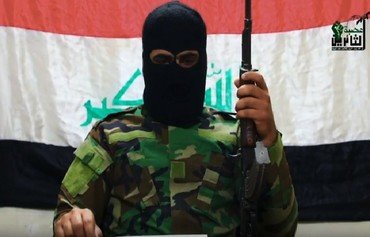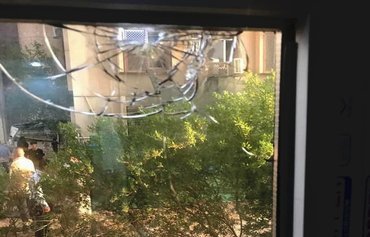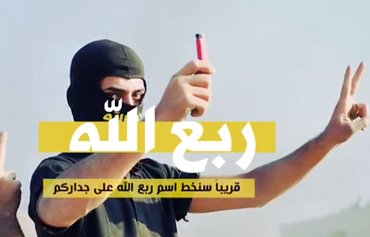The new Iraqi faction claiming responsibility for attacks against US interests is just a smokescreen intended to deflect attention from the powerful Iran-backed militias staging the attacks, Iraqi experts say.
Usbat al-Thaereen (League of the Revolutionaries) made its debut by claiming a March 11th attack, when 18 rockets hit Taji airbase, killing two US military personnel and a British soldier.
Three days later, a volley of 33 Katyusha missiles hit Taji again, causing several casualties, international coalition and Joint Operations Command officials said.
On April 8th, the militia posted a video of the embassy building in Baghdad and the Ain al-Assad airbase in western Anbar, filmed from the air with a remote-controlled drone.
It was accompanied with threats of retaliation for the death of top Iranian general Qassem Soleimani and Abu Mahdi al-Muhandis, who were killed in a US airstrike early this year.
'Fronts created by Iran'
Half a dozen previously unheard-of factions have claimed similar attacks against US interests in recent months, under the banner of "Islamic resistance".
No clear leadership has emerged for Usbat al-Thaereen or any of the other new groups, but their operations often make top headlines in Iranian or militia-affiliated media outlets.
This reinforces the perception that these groups were created as mere media tools to deflect suspicion from the prominent militias, which are today part of the political landscape in Iraq.
The new groups include Saraya al-Muntaqem (The Avenger's Regiments), Qabdat al-Mahdi (Al-Mahdi's Fist) and Ashab al-Kahf (People of the Cave), which claimed responsibility for IED bombings on routes used by international coalition convoys.
These groups "do not exist", said political analyst and researcher Abdul Qader al-Nayel. The actual perpetrators of the attacks are Kataib Hizbullah, Harakat al-Nujaba and Asaib Ahl al-Haq -- the most hardline pro-Iran groups, he said.
Iran was forced to propagate names of previously unknown factions "to absolve its main proxies of responsibility for the escalating attacks on US [and other] foreign missions and interests and shield them from retaliation by Washington", he told Diyaruna.
Usbat al-Thaereen and other factions are "fronts" created by the Iranian regime to maintain its influence and to demonstrate that it has sway over mercenary groups in Iraq that can implement its agenda, he added.
Using Iraq as staging ground
The escalation of attacks by these groups, under the guidance of the Islamic Revolutionary Guard Corps (IRGC), is a "dangerous indication of Iran's efforts to turn Iraq into an arena of confrontation with the international community", said al-Nayel.
It also shows that these militias continue to serve Iran "at the expense of their country's future, security and stability", he said.
But political expert Ghanem al-Abed said Usbat al-Thaereen and other newly emerged militias may not be fronts, but rather armed entities created by Iran representing the "elite of the elite".
What drives Iran to form new groups comprising select members of its top proxies in Iraq, led by Kataib Hizbullah, he said, is its desire to recruit figures whom it trusts and whose loyalty is assured.
By using factions like Usbat al-Thaereen, Iran is "trying to escalate the confrontation with the US on Iraqi soil" so that it can leverage this in negotiations to ease the economic blockade imposed on it, he said.
Pro-Iran militias operating in Iraq are "nothing but a tool in the hands of Iran's Supreme Leader, the IRGC and Iranian intelligence", said Ghazi Faisal Hussein, an adviser to the Iraqi Centre for Strategic Studies.
Iran is using these proxies to implement its project of exporting its revolution and impose its hegemony over the region by "fueling violence, unrest and sectarian divisions and the proliferation of weapon and drug smuggling and money laundering", he told Diyaruna.
Iran-affiliated media have been publicising new militias in order to camouflage and cover up the activities of its hardline proxies, which, despite having entered the political arena, continue to threaten Iraq's sovereignty and the interests of Iraqi citizens, he said.








